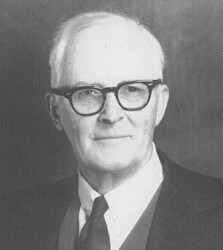
“Indolent and unworthy the beggar may be—but that is not your concern: It is better, said Joseph Smith, to feed ten impostors than to run the risk of turning away one honest petition.”
| Approaching Zion
LDS Quotes on Charity

“Indolent and unworthy the beggar may be—but that is not your concern: It is better, said Joseph Smith, to feed ten impostors than to run the risk of turning away one honest petition.”
| Approaching Zion
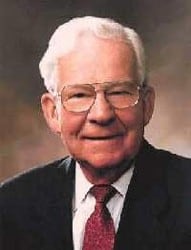
“The best and most clear indicator that we are progressing spiritually and coming unto Christ is the way we treat other people.”
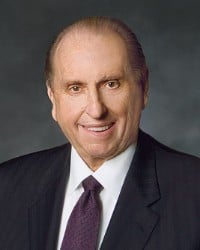
“Never let a problem to be solved become more important than a person to be loved.”
| "Finding Joy in the Journey," Conference October 2008

A long time ago, I took a walk down a street in Harlem in New York City. I came upon a man who asked me for a dollar. He had asked a few other people before me, but they only passed him by without glancing his way. I stopped and handed the man some money. As I began to turn away, he reached out and shook my hand. He looked me in the eyes and said, “I will bless you.” Now, I’m not saying that was God Himself. But how do we know that it wasn’t someone working for him, walking around in disguise, just to see what we would do?
| The Soul of a Butterfly
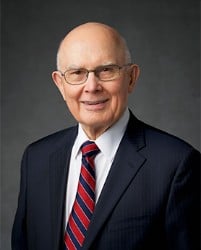
“We are challenged to move through a process of conversion toward that status and condition called eternal life. This is achieved not just by doing what is right, but by doing it for the right reason – for the pure love of Christ. The Apostle Paul illustrated this in his famous teaching about the importance of charity. The reason charity never fails and the reason charity is greater than even the most significant acts of goodness he cited is that charity, “the pure love of Christ,” is not an act but a condition or state of being. Charity is attained through a succession of acts that result in a conversion. Charity is something one becomes. Thus, as Moroni declared, “except men shall have charity they cannot inherit” the place prepared for them in the mansions of the Father.”
| Ensign, November 2000, p. 32-34

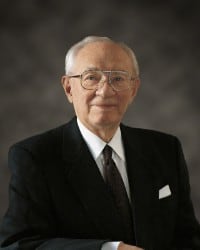
| Standing for Something: 10 Neglected Virtues That Will Heal Our Hearts and Homes

“We hope that through the payment of liberal fast offerings there will be more than enough to provide for the needs of the less fortunate. If every member of this church observed the fast and contributed generously, the poor and the needy – not only of the Church, but many others as well, would be blessed and provided for. Every giver would be blessed in body and spirit, and the hungry would be fed, the naked clothed according to need.”
| “Rise to a Larger Vision of the Work,” Ensign, May 1990, p. 95

We obtain a remission of our sins by pleading to God, who compassionately responds, but we retain a remission of our sins by compassionately responding to the poor who plead to us.

“It has sometimes been asked whether God commands certain things because they are right, or whether certain things are right because God commands them…I empathically embrace the first alternative. The second might lead to the abominable conclusion that charity is good only because God arbitrarily commanded it — that He might equally well have commanded us to hate Him and one another and that hatred would then have been right. I believe, on the contrary, that ‘they err who think that of the will of God to do this or that there is no reason besides His will.'”
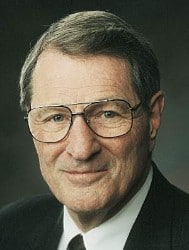
Meanwhile, ultimate hope makes it possible to say the same three words used centuries ago by three valiant men. They knew God could rescue them from the fiery furnace, if He chose. “But if not,” they said, nevertheless, they would still serve Him! (Dan. 3:18)
Unsurprisingly the triad of faith, hope, and charity, which brings us to Christ, has strong and converging linkage: faith is in the Lord Jesus Christ, hope is in His atonement, and charity is the “pure love of Christ”! (See Ether 12:28; Moro. 7:47.) Each of these attributes qualifies us for the celestial kingdom (see Moro. 10:20–21; Ether 12:34). Each, first of all, requires us to be meek and lowly (see Moro. 7:39, 43).
Faith and hope are constantly interactive, and may not always be precisely distinguished or sequenced. Though not perfect knowledge either, hope’s enlivened expectations are “with surety” true (Ether 12:4; see also Rom. 8:24; Heb. 11:1; Alma 32:21). In the geometry of restored theology, hope has a greater circumference than faith. If faith increases, the perimeter of hope stretches correspondingly.
Just as doubt, despair, and desensitization go together, so do faith, hope, and charity. The latter, however, must be carefully and constantly nurtured, whereas despair, like dandelions, needs so little encouragement to sprout and spread. Despair comes so naturally to the natural man!
| Elder Neal A. Maxwell, Conference Report, October 1994

“Even the gifts of God are of little final use, if one has not developed the quality of charity. I hope we understand the implications of those words. Without charity we can’t go to the upper rooms of the celestial kingdom. It is just as essential as baptism. So what we are to do and what we are to be are incredibly important.”
| address at New Mission Presidents Seminar, Church News, July 2, 1994, p. 5
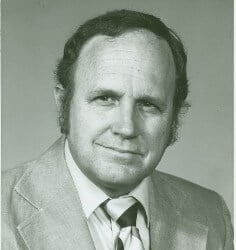
“Perhaps the world little notes nor long remembers individual acts of kindness – but people do.”
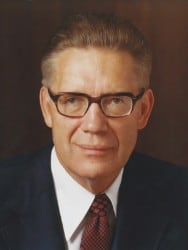
“Above all the attributes of godliness and perfection, charity is the one most devoutly to be desired. Charity is more than love, far more; it is everlasting love, perfect love, the pure love of Christ which endureth forever. It is love so centered in righteousness that the possessor has no aim or desire except for the eternal welfare of his own soul and for the souls of those around him.”
| Mormon Doctrine, p. 121
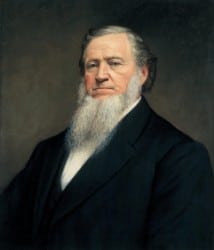
“We need to learn, practice, study, know and understand how angels live with each other. When this community comes to the point to be perfectly honest and upright, you will never find a poor person; none will lack, all with have sufficient. Every man, woman, and child will have all they need just as soon as they all become honest. When the majority of the community are dishonest, it maketh the honest portion poor, for the dishonest serve and enrich themselves at their expense.”
| Discourses of Brigham Young, p. 232
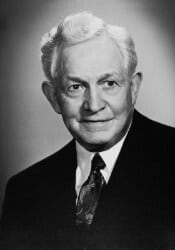
“Benevolence in its fullest sense is the sum of moral excellence, and comprehends every other virtue. It is the motive that prompts us to do good to others and leads us to live our life for Christ’s sake. All acts of kindness . . . of forgiveness, of charity, of love, spring from this divine attribute.”
| “Christ, the Light of Humanity,” Improvement Era, June 1968, 4.

“We, more than others, should carry jumper and tow cables not only in our cars, but also in our hearts, by which means we can send the needed boost or charge of encouragement or the added momentum to mortal neighbors.”
| All These Things Shall Give Thee Experience
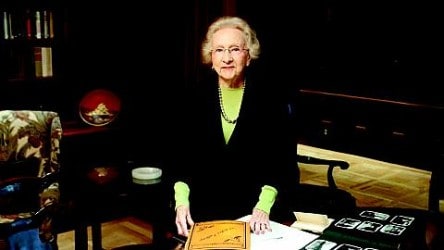
“It is not charity or kindness to endure any type of abuse or unrighteousness that may be inflicted on us by others. God’s commandment that as we love him, we must respect ourselves, suggests we must not accept disrespect from others. It is not charity to let another repeatedly deny our divine nature and agency. It is not charity to bow down in despair and helplessness. That kind of suffering should be ended.”
| Ensign, November 1991, p. 77
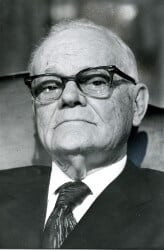
“The caring for the poor and the handicapped and those who need our help is a main purpose and an absolute requirement in fulfilling the royal law of loving our neighbors as ourselves. You will remember the great sermon of Amulek on prayer, in which he tells the people to pray and tells them how often to pray – morning, night, and noon – and tells them where to pray and how to pray and what to pray for. He goes into great detail and then he says that “after ye have done all these things, if ye turn away the needy, and the naked, and visit not the sick and afflicted, and impart of your substance, if ye have, to those who stand in need – I say unto you, if ye do not any of these things, behold, your prayer is vain, and availeth you nothing, and ye are as hypocrites who do deny the faith.”
| Conference Report, April 1978
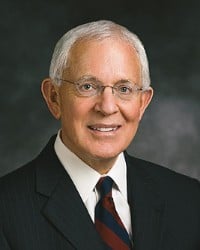
“The Prophet Joseph Smith taught that “friendship is one of the grand fundamental principles of ‘Mormonism.’ ” That thought ought to inspire and motivate all of us because I feel that friendship is a fundamental need of our world. I think in all of us there is a profound longing for friendship, a deep yearning for the satisfaction and security that close and lasting relationships can give. Perhaps one reason the scriptures make little specific mention of the principle of friendship is because it should be manifest quite naturally as we live the gospel. In fact, if the consummate Christian attribute of charity has a first cousin, it is friendship.”
| Friendship: A Gospel Principle, Ensign, May 1999, 64
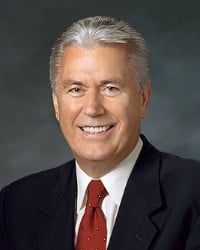
“Hope is critical to both faith and charity. When disobedience, disappointment, and procrastination erode faith, hope is there to uphold our faith. When frustration and impatience challenge charity, hope braces our resolve and urges us to care for our fellowmen even without expectation of reward. The brighter our hope, the greater our faith. The stronger our hope, the purer our charity.”
| The Infinite Power of Hope, Ensign, Nov 2008, 21–24

“The things we hope for lead us to faith, while the things we hope in lead us to charity. The three qualities faith, hope, and charity working together, grounded on the truth and light of the restored gospel of Jesus Christ, lead us to abound in good works.”
| The Infinite Power of Hope, Ensign, Nov 2008, 21–24
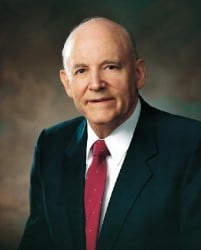
“We need to be kinder with one another, more gentle and forgiving. We need to be slower to anger and more prompt to help. We need to extend the hand of friendship and resist the hand of retribution. In short, we need to love one another with the pure love of Christ, with genuine charity and compassion and, if necessary, shared suffering, for that is the way God loves us.”
| A More Excellent Way, Conference April 1992

“But how are we to be made happy? There is one course—love the Giver more than the gift.”
| JD 9:31, Brigham Young, The Gifts of God, Etc.

“Generally speaking, the most miserable people I know are those who are obsessed with themselves; the happiest people I know are those who lose themselves in the service of others…By and large, I have come to see that if we complain about life, it is because we are thinking only of ourselves.”
| “Whosoever Will Save His Life”
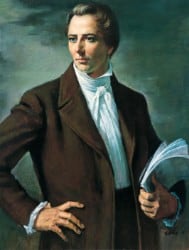
“The nearer we get to our Heavenly Father, the more we are disposed to look with compassion on perishing souls.”

“Our opportunities to give of ourselves are indeed limitless, but they are also perishable. There are hearts to gladden. There are kind words to say. There are gifts to be given. There are deeds to be done. There are souls to be saved.”
| The Gifts of Christmas, First Presidency Message, December 2003

“Only a few men on the earth understand the charity that fills the bosom of our Savior. We should have charity; we should do all we can to reclaim the lost sons and daughters of Adam and Eve, and bring them back to be saved in the presence of our Father and God. If we do this, our charity will extend to the utmost extent that it is designed for the charity of God to extend in the midst of this people.”
| Discourses of Brigham Young, p. 273

“In this long eternal quest to be more like our Savior, may we try to be “perfect” men and women in at least this one way now-by offending not in word, or more positively put, by speaking with a new tongue, the tongue of angels. Our words, like our deeds, should be filled with faith and hope and charity, the three great Christian imperatives so desperately needed in the world today.”
| "The Tongue of Angels", Ensign, May 2007, 16–18

“Because love is the great commandment, it ought to be at the center of all and everything we do in our own family, in our Church callings, and in our livelihood. Love is the healing balm that repairs rifts in personal and family relationships. It is the bond that unites families, communities, and nations. Love is the power that initiates friendship, tolerance, civility, and respect. It is the source that overcomes divisiveness and hate. Love is the fire that warms our lives with unparalleled joy and divine hope. Love should be our walk and our talk.”
| The Love of God, Ensign, Nov 2009, 21–24

| ‘Judge not,’ President Monson counsels women
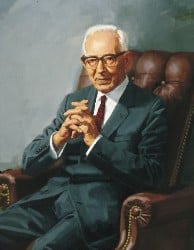
“Charity, or love, is the greatest principle in existence. If we can lend a helping hand to the oppressed, if we can aid those who are despondent and in sorrow, if we can uplift and ameliorate the condition of mankind, it is our mission to do it, it is an essential part of our religion to do it.”
| Conference Report, April, 1918, p. 4

“Hope is one leg of a three-legged stool, together with faith and charity. These three stabilize our lives regardless of the rough or uneven surfaces we might encounter at the time… Hope in our Heavenly Father’s merciful plan of happiness leads to peace, mercy, rejoicing, and gladness. The hope of salvation is like a protective helmet; it is the foundation of our faith and an anchor to our souls.”
| The Infinite Power of Hope, Ensign, Nov 2008, 21–24

“Real charity is not something you give away; it is something that you acquire and make a part of yourself. And when the virtue of charity becomes implanted in your heart, you are never the same again. It makes the thought of being a basher repulsive.
“Perhaps the greatest charity comes when we are kind to each other, when we don’t judge or categorize someone else, when we simply give each other the benefit of the doubt or remain quiet. Charity is accepting someone’s differences, weaknesses, and shortcomings; having patience with someone who has let us down; or resisting the impulse to become offended when someone doesn’t handle something the way we might have hoped. Charity is refusing to take advantage of another’s weakness and being willing to forgive someone who has hurt us. Charity is expecting the best of each other.”
| Ensign, May 1992, p. 19

“No, the Lord doesn’t really need us to take care of the poor, but we need this experience; for it is only through our learning how to take care of each other that we develop within us the Christlike love and disposition necessary to qualify us to return to his presence.”
| “Living Welfare Principles,” General Conference, October 1981

“It is a serious thing to live in a society of possible gods and goddesses, to remember that the dullest and most uninteresting person you talk to may one day be a creature which . . . you would be strongly tempted to worship. . . . There are no ordinary people.”
| “Love Thy Neighbor,” in The Joyful Christian (New York: Touchstone, 1996), 197.

“Hope is one leg of a three-legged stool, together with faith and charity. These three stabilize our lives regardless of the rough or uneven surfaces we might encounter at the time… Hope in our Heavenly Father’s merciful plan of happiness leads to peace, mercy, rejoicing, and gladness. The hope of salvation is like a protective helmet; it is the foundation of our faith and an anchor to our souls.”
| "The Infinite Power of Hope", Ensign, Nov 2008, 21–24

“One may have many talents and knowledge but never acquire wisdom because he does not learn to be compassionate with his fellow man. We will never approach godliness until we learn to love and lift. Indifference to others and their plight denies us life’s sweetest moments of joy and service.”
| “The Measure Of Our Hearts,” General Conference, October 1988
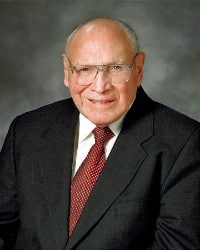
“Kindness is the essence of greatness and the fundamental characteristic of the noblest men and women I have known. Kindness is a passport that opens doors and fashions friends. It softens hearts and molds relationships that can last lifetimes.”
| The Virtue of Kindness, Liahona, May 2005, 26–28
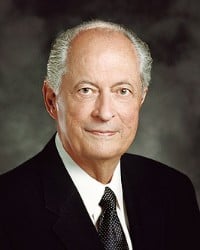
“The attributes of the Savior, as we perceive them, are not a script to be followed or list to be checked off. They are interwoven characteristics, added one to another, which develop in us in interactive ways. In other words, we cannot obtain one Christlike characteristic without also obtaining and influencing others. As one characteristic becomes strong, so do many more.”
| Becoming a Disciple of Our Lord Jesus Christ
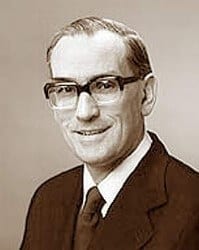
“Service changes people. It refines, purifies, gives a finer perspective, and brings out the best in each one of us. It gets us looking outward instead of inward. Righteous service is the expression of true charity, such as the Savior showed.”
| The Spirituality of Service, Ensign, May 1990, 12

“Stated simply, charity means subordinating our interests and needs to those of others, as the Savior has done for all of us. The Apostle Paul wrote that of faith, hope, and charity, “the greatest of these is charity” (1 Cor. 13:13), and Moroni wrote that “except ye have charity ye can in nowise be saved in the kingdom of God” (Moro. 10:21). I believe that selfless service is a distinctive part of the gospel. As President Spencer W. Kimball said, welfare service “is not a program, but the essence of the gospel. It is the gospel in action.”
| “Fruits of the Restored Gospel of Jesus Christ,” Ensign, October 1991

“As I read and ponder the scriptures, I see that developing faith, hope, and charity within ourselves is a step-by-step process. Faith begets hope, and together they foster charity. We read in Moroni, “Wherefore, there must be faith; and if there must be faith there must also be hope; and if there must be hope there must also be charity.” These three virtues may be sequential initially, but once obtained, they become interdependent. Each one is incomplete without the others. They support and reinforce each other.”
| “Cultivating Divine Attributes,” Ensign, Nov. 1998

“Nothing you do makes much of a difference if you do not have charity. You can speak with tongues, have the gift of prophecy, understand all mysteries, and possess all knowledge; even if you have the faith to move mountains, without charity it won’t profit you at all…. Without charity—or the pure love of Christ—whatever else we accomplish matters little. With it, all else becomes vibrant and alive.”
| The Great Commandment, (Ensign, Nov 2007, 28–31)

“Note that charity is given only to those who seek it, only to those who earnestly pray for it, only to those who are disciples of Christ. Before we can be filled with this pure love, we must start at the beginning with the first principle of the gospel. We must have “first, Faith in the Lord Jesus Christ.”
| Cultivating Divine Attributes, Ensign, November 1998
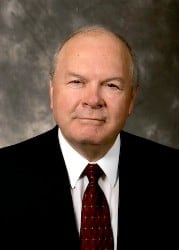
“Charity is not an act but a way of life, a condition of the heart.”
| BYU Education Week 2005

“It is not enough to simply be known as a member of this Church. A solemn obligation rests upon us. Let us face it and work at it.
“We must live as true followers of the Christ, with charity toward all, returning good for evil, teaching by example the ways of the Lord, and accomplishing the vast service He has outlined for us.”
| “A beautiful light,” Church News, Apr. 10, 2004, p. 10

Hope is one leg of a three-legged stool, together with faith and charity. These three stabilize our lives regardless of the rough or uneven surfaces we might encounter at the time. . . . Hope in our Heavenly Father’s merciful plan of happiness leads to peace, mercy, rejoicing, and gladness. The hope of salvation is like a protective helmet; it is the foundation of our faith and an anchor to our souls.
| “The Infinite Power of Hope,” Ensign, November 2008, pp. 21-24